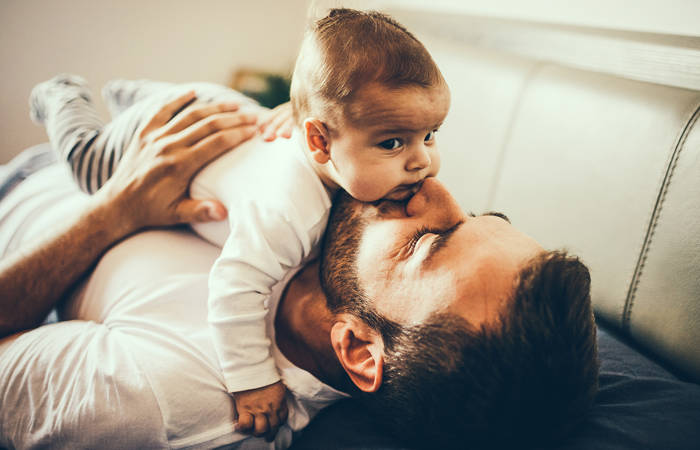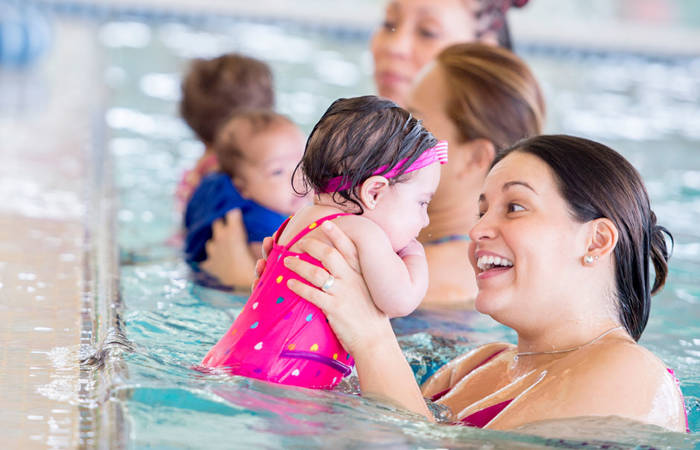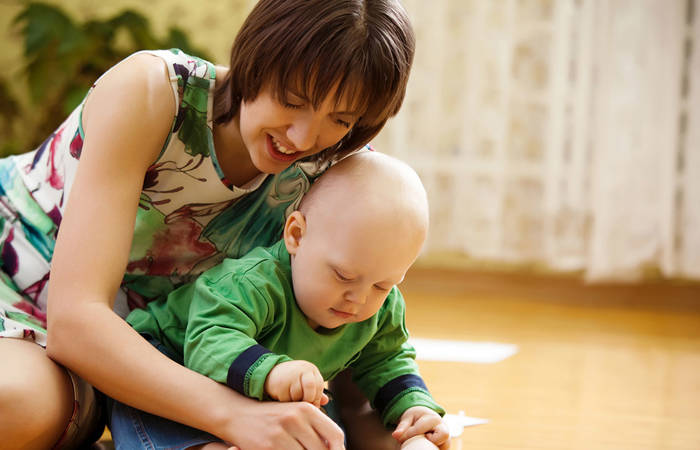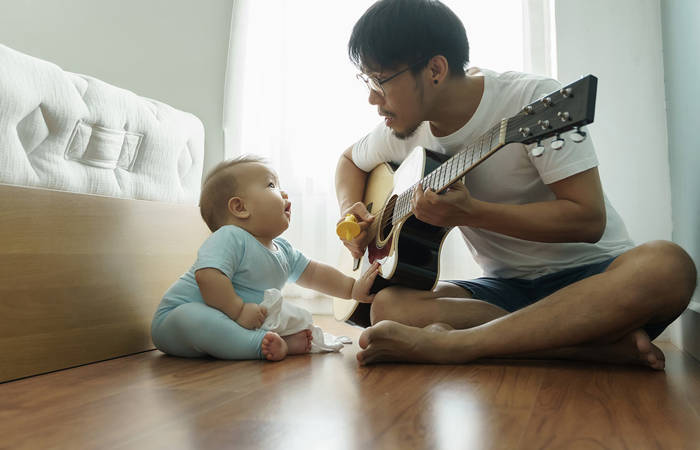Like what you see?
Sign up to receive more free parenting advice.
Thank you for subscribing to our newsletter!
Lifestyle

Credit: iStock.com/SolStock
Associate Professor Richard Fletcher has been conducting research with fathers and families for over 20 years. He began the SMS4dads text-messaging program and is co-convenor of the Australian Fatherhood Research Network. In this article he looks at the changed roles of fathers and how to make the most of time with their children.
Right now, a lot of dads are staying at home. Some are working from home, some are laid off or stood down, some are taking enforced leave. Among these dads, those with young children may struggle to find their way in the new situation.
It wouldn’t be surprising if a dad who was forced to be at home, worried about paying the bills, was unimpressed when his three-year-old asks to go to the park again. Or to play another game of hide and seek. When there are high levels of stress and uncertainty about the future, even dads who enjoy playing, and who might usually enjoy this unexpected family time at home, can become dismissive or even grumpy about his youngsters’ demands.
From the child’s point of view, this new arrangement might look like a wonderful treat. Here is dad, the one who leaves home most mornings, and is often somewhere else when you would like to play, right here at home. For a child, especially a young child, the situation may appear obvious: “He’s not going out. He’s clearly available. What is there to stop him paying me attention, joining in with what I am doing, watching me or showing me things?” For the child, it couldn’t get much better.
It may not be possible to avoid disappointing the child to some extent. But there are some ways for both dads and their child to benefit from this enforced at-home situation.
A new role to figure out
The usual arrangement in under-5 families — where 90% of dads go to work, compared to just 60% of mums — sends a message about male and female roles. Having both parents bouncing around the house all day can help kids see these roles differently.
Young children are keen observers of their parents, so the activities that dad does when he’s home will build up a mental picture of parental roles. However, while the new situation may expand dad’s role, often there will be a lot of the extra time spent playing or hanging about together.
For some dads this might not be easy. Pre-schoolers seem to want constant change. There are too many distractions to follow through with a game or stick with an activity. By the age of 3 or 4, toys can lose their power to engage, especially if they now have to make up for missing out on the intense interactions that occur at child care or playgroup. So, while your child is pleased at the extra attention, the style of interaction may not be completely comfortable for dad.
A challenge in one-on-one time with a toddler is to follow their interest, even if it is not clear where the activity is heading. Swapping from trying on shoes in the bedroom, to rolling the ball down the hallway, to climbing on the lounge chair can feel chaotic. Equally, it can be hard to maintain your attention while your 18-month old tries again and again to get the Duplo blocks to connect.
Maintaining your interest while following the lead of a young person is not just a challenge for dads, but it might be more of a stretch if you are the sort of dad who is used to ‘getting things done’ and ticking off your list of tasks.
Dads say they find the transition from work to home often requires a shift in gears. Not exactly a slow-down, but a definitely a re-framing to adjust to a situation where you are less in control and less able to plan ahead.
For a child, especially a young child, the situation may appear obvious: “He’s not going out. He’s clearly available. What is there to stop him paying me attention, joining in with what I am doing, watching me or showing me things?”Associate Professor Richard Fletcher
Stay up to date with the latest news and articles from First Five Years
Thank you for subscribing to our newsletter!
Focus on the learning
One helpful way of adapting to the child-focused world is to value the learning that you are both doing. If there is value in the small moments of connection, then finding the energy to stay focused will be easier. I discovered the way that dads might miss the importance of small interactions in a project where I visited dads at home with their babies who had been born prematurely.
In the project I would video the dad interacting with their baby for about ten minutes, usually playing on the floor. A fortnight later we’d watch the recording and talk about the signals from the baby that we could see on the video. While watching the scene replayed on the video, dads could identify where the baby had been giving a message of what they did or didn’t like, or what they found interesting — messages that weren’t obvious when we were filming.
If the baby beside us was occupied with a rattle or a corner of the carpet I would ask the dad, “If I wasn’t here now and you were just here with your baby, what would you do at this moment?”. Often the dad would look down at the baby, see that they were happily engaged and say things such as, “Oh I might make a call or answer an email”, or “I could finish clearing the breakfast things”.
It seemed for these dads, if their baby wasn’t distressed or needing something done, then there would be no great value in spending time with them while they were happily exploring or investigating. The value of these small, low-energy interactions to their relationship and to their baby’s development was not something that these well-educated and caring dads had thought about.
Important? Who me?
In another project filming dads solving puzzles with their pre-schoolers, the way that dads might underestimate their own importance was brought home to me. The puzzles were deliberately a bit too difficult for the child’s age. Dad was told only to help if asked to. Before we reviewed the video of them problem solving I would ask, “In this session, how many times do you reckon he/she looked at you?”. After a pause the dad would guess, saying something like, “Oh I don’t know, maybe five times”.
When we watched the video together we could count how many times. Usually the total number, it was always way above what the dad had guessed. What dads underestimated was how often their child wanted to know what he, the dad, was thinking or to check his reaction. Selecting a puzzle piece to try to fit in, there would be a quick glance to see if dad was nodding, smiling approval, showing a hesitation or not paying attention at all. This evidence of their importance gave the dads in this project more reason to pay attention, even when their children were happily engaged in an activity.
For dads who are suddenly faced with more time at home with young children, valuing the small moments of interaction, while keeping in mind just how important you are to them, even when things are busy, may help get the most from the situation for both you and your youngster.
At the least, the extended interaction time will increase your understanding of how your pre-schooler is developing, their preferences and interests, likes and dislikes. Knowing your child better will help your relationship, something that will pay dividends over future years. But there may well be another bonus in the close contact type of play that pre-schoolers revel in.
Physical contact can reduce stress levels and increase your mental wellbeing. Spending time down on the carpet or the lawn, getting involved in whatever is on his or her agenda may be much better for your stress levels than watching yet another news broadcast on the pandemic.
Having someone small who can hug, push or just sit on you may be an important way to build your own resilience. Your youngster, even though they may be reacting to the tensions around them, will not be putting talking heads on the television high on their list. Following their lead may be your best bet.

Dr Richard Fletcher
Richard Fletcher is Associate Professor, Brain and Mental Health Priority Research Centre, Faculty of Health and Medicine, The University of Newcastle.
See more





